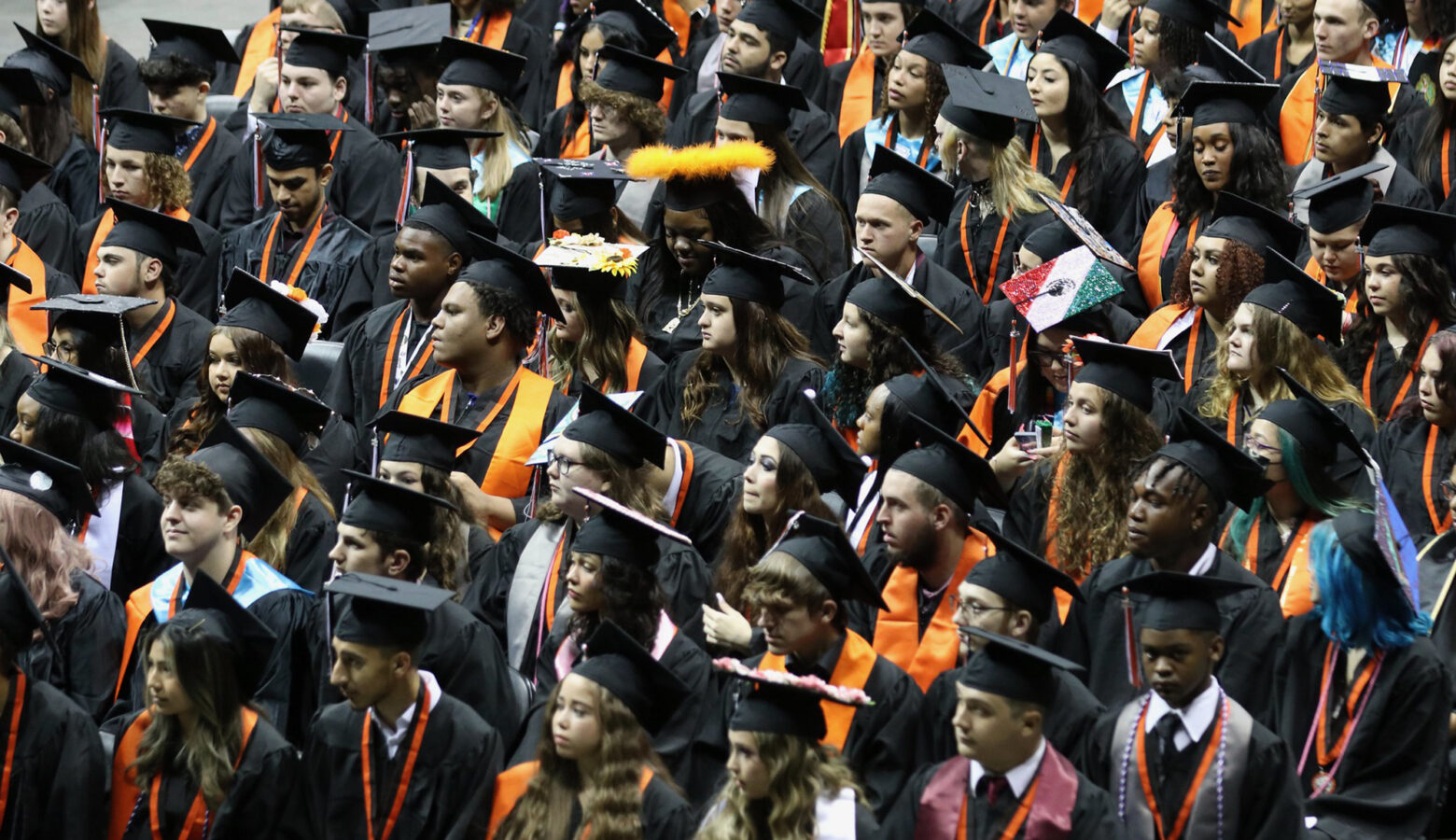IDOE reveals first draft of high school graduation overhaul, set to take effect 2029

High school will look different for Indiana students in coming years. The state revealed its first attempt at creating new graduation requirements on Wednesday.
The requirements create two new high school diplomas: the Indiana GPS and the Indiana GPS Plus. GPS stands for graduates prepared to succeed.
Indiana Secretary of Education Katie Jenner said the goal of revamping high school diplomas is to personalize students’ education based on their goals after high school.
“What we’re really trying to consider is, how might we really allow for more flexibility and personalization for students depending on what their purpose and path is ahead?” she said.
Jenner said the new diploma requirements are the first of their kind and could serve as a model to other states. She added that developing the requirements was a massive undertaking, but Jenner said she believes the process has paid off.
“The past few months and years, we have been talking through this, planning for this,” she said. “In many respects, this has felt like pushing a massive boulder up a steep mountain because there’s no road map anywhere in the nation that we can just grab and take. When it comes to pushing a boulder up a mountain, no one person can do it alone.”
The GPS diploma is a reimagined version of Indiana’s current Core 40 diploma. For students to earn a GPS Diploma, they must take traditional subjects like English, math and science.
But they would also be required to show college and career readiness with experiences like attending job fairs, taking a career aptitude test or scoring well on the SAT.
The Indiana Department of Education said grades nine and 10 will focus on foundational courses and competencies. Along with English, math and science, students will also be required to earn credits related to career and postsecondary readiness, communication and collaboration, and work ethic. Credits in civics, financial literacy and computer science will also be required.
There are different ways to fulfill the credit requirements for each area. Students could satisfy one of the work ethic requirements with physical education or a health class. They could fulfill the second requirement by maintaining a 94 percent attendance rate or achieving a 3.0 cumulative GPA at the end of 10th grade.
Students in 11th and 12th grade would have even more freedom.
The IDOE uses a point system to measure older students’ mastery of skills and competencies since they earn credits outside of traditional classes. Students in grades 11 and 12 must earn at least 20 points to graduate. The current diploma proposal only requires that two of those points be for math and four for English.
Students can earn their remaining points in areas like fine arts, debate, JROTC, dual credit, Advanced Placement classes, work-based learning, or through other credentials and pathways.
Jenner said students who want more hands-on learning may opt for the GPS Plus diploma.
“The Diploma Plus very specifically requires a quality work-based learning experience for students,” she said. “And of course that varies by hours and what that might be.”
Students earning the GPS Plus Diploma must also graduate with a credential, certificate or college credit.
READ MORE: Indiana looks to in-demand labor skills ahead of graduation requirements overhaul
Join the conversation and sign up for the Indiana Two-Way. Text “Indiana” to 765-275-1120. Your comments and questions in response to our weekly text help us find the answers you need on statewide issues.
Indiana State Board of Education member Scott Bess said Indiana is paving the way for the rest of the nation by being less prescriptive about students’ high school experiences.
“We’ve got a launching point for what I think is going to be revolutionary in terms of what schools are able to do and the flexibility they’re going to have to be able to better serve their students,” he said.
George Philhower, superintendent at Eastern Hancock Schools, also spoke in favor of the new graduation requirements. He said for students to succeed, schools must have more space to meet their individual needs.
“We know it’s true that not every 17-year-old knows what they want to do for the rest of their life, but I think that we’ve used that to essentially not do a great job helping kids think about it,” he said. “I think any change that’s more student-centered is going to involve lots of conversations with kids about their future hopes and dreams and their current strengths, interests and values.”
The IDOE will hold two public comment periods this spring and summer before a final vote on the new requirements. The state will switch to the new diplomas at the beginning of 2029, but schools can choose to opt in sooner.
Kirsten is our education reporter. Contact her at kadair@wfyi.org or follow her on Twitter at @kirsten_adair.

